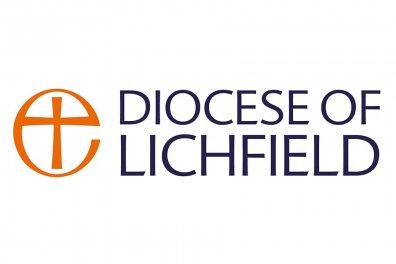Please note: there are new Faculty Fees for 2025.
Please note the fee to lodge a petition is non-refundable and is not a “payment” for the faculty; it is the statutory fee for the services of the Registry whether or not the faculty is granted.
On this page we provide specific information about several types of Faculty Petition which relate to private individuals' requests for authorisations within churchyards. Private individuals who petition the Court must pay the fees for the petition under the Fees Order, details of which are given in these notes. These petitions usually concern:
- specific memorials (which the Incumbent has been unable or is unwilling to authorise under the Churchyard Regulations);
- reservations of grave spaces in churchyards;
- burials of cremated remains in closed churchyards; and
- the exhumation of remains from churchyards.
The request for an authorisation is made to the Chancellor of the Consistory Court by a formal Petition. The request is for a judicial decision to be made. Please note in particular that if the Chancellor issues a formal Judgment in relation to your Petition, then, because the Consistory Court is a public, civil, Court, the Judgment will be published on this web site and that of the Ecclesiastical Law Association, and may well be published in law reports, and other places. Members of the public including the media have access to the Judgments of the Consistory Court, and are free to publish details which appear in the Judgment. The purpose of publication of Judgments is to explain to the public how decisions have been reached in particular cases and so as to assist the public in understanding the legal issues at stake; it also ensures transparency.
An objector to a Faculty Petition or a person with an interest in the matter, including the Incumbent, Minister, PCC or Churchwardens for example, may well be entitled to see the contents of a Petition and any supporting information, and in some situations public notice is required to be given as to the proposal.
Anyone seeking to lodge a Petition should read the general Guidelines as to fees and as to costs, as well as ensuring that they have read the Guidance in the Churches and Churchyard sections about the general legal position within Churchyards and the Chancellors Regulations. The Registry can advise about procedural matters, and will try to explain any general legal principles but petitioners should seek their own legal advice about particular legal issues if there are particular points that they are unsure about.
In some instances, family details and consent forms are provided. The Consistory Court is exercising a judicial discretion and will need to be informed about other relatives who might consider that they are affected by a particular proposal. It may indeed be necessary to give formal notice of the Court proceedings to such other persons.
Guidance for all faculty petitions
In all cases, we would encourage petitioners to read the following three guidance notes, prior to submitting a faculty petition:
- Faculty Guidelines (Including Fees) for non-parochial Faculty Petitions
- Costs in Faculty Proceedings
- Contested or Controversial Faculty Guidance
Memorials
Burials, monuments and exhumations are regulated by law. The design of memorials is controlled to make sure that churches and churchyards remain special places that everyone can appreciate.
The Churchyard Regulations govern what an Incumbent can permit in the churchyard without the need for a Faculty:
In the first instance, bereaved families should contact the incumbent for an informal discussion regarding proposed memorial designs.
Following discussion, please use 'standard' form when applying for the installation of a memorial that does not require a faculty:
If the incumbent is unable to authorise the memorial, the family or executor may apply to the Consistory Court for a faculty. Please use the forms listed below when applying (we would suggest that all petitioners read the Guidance Notes and the Guidelines regarding fees, before completing the petition forms). As part of the faculty petition, please include a signed copy of the refused Standard Memorial Form.
- Introduction of a Memorial Guidance Notes
- Introduction of a Memorial Petition Form
- Introduction of a Memorial Family Details Form
- Introduction of a Memorial Family Consent Form
- Introduction of a Memorial Representation Choice Form
Grave Space
These forms are to be used when applying for a faculty to reserve a grave space (we would suggest that all petitioners read the Guidance Notes and the Guidelines regarding fees, before completing the petition form).
Exhumation
These forms are to be used when applying for a faculty for exhumation (we would suggest that all petitioners read the Guidance Notes and the Guidelines regarding fees, before completing the petition forms).
- Exhumation Guidelines
- Exhumation Petition Form
- Exhumation Family Details Form
- Exhumation Family Consent Form
- Exhumation Representation Choice Form
Burial of Cremated Remains in a Closed Churchyard
Please use these forms when applying for a faculty to bury cremated remains in a closed churchyard (we would suggest that all petitioners read the Guidance Notes and the Guidelines regarding fees, before completing the petition forms).
- Burial of Cremated Remains Procedural Guidance Note
- Burial of Cremated Remains Non-Family Petition Form
- Burial of Cremated Remains Family Petition Form (a reduced £60.00 petition fee applies)
- Burial of Cremated Remains Family Details Form
- Burial of Cremated Remains Family Consent Form
- Burial of Cremated Remains Representation Choice Form
